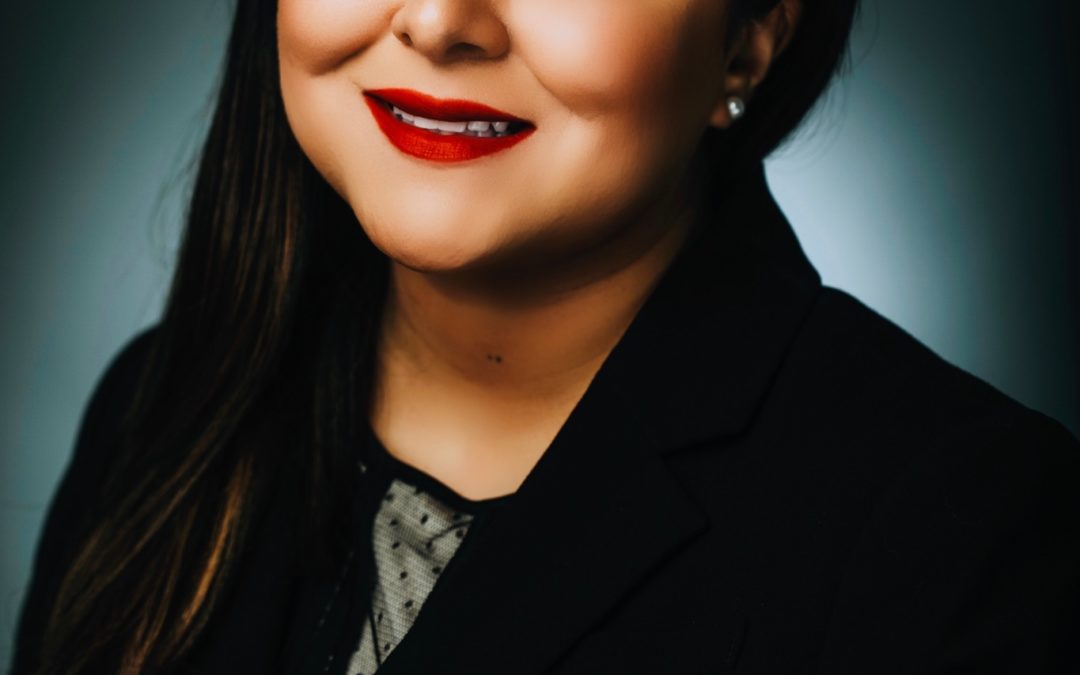This week’s National School Nurse Day (May 12) honors the tireless and complex work of school nurses—all of whom cared for students thorough a constantly changing year that veered between in-person, remote, and a hybrid of both.
Minority Nurse caught up with Gloria E. Barrera, MSN, RN, PEL-CSN, who currently works as a certified school nurse at a public high school outside of Chicago to find out what the past year has been like. Barrera is the first Latina president of the Illinois Association of School Nurses and is active as an adjunct professor of nursing at DePaul University, University of Illinois Chicago, Capella University, and Saint Xavier University (her alma mater) among others. (Please read more of Barrera’s accomplishments below.)
What led you to your career as a school nurse?
I had a wonderful community health nursing rotation within my undergraduate nursing coursework that always stuck with me. I worked on a trauma unit after earning my BSN, and often thought back to that course and the role of a public health nurse. I remember calling my high school nurse on one of my days off and asking her “what do I have to do to become a school nurse?” I made the decision to follow my passion after that phone call and haven’t looked back since.
How has your job changed in the last year and with all the ramifications from the pandemic?
School nurses have always answered the call to serve during times of crisis. What I know for sure about school nursing is that we are each demonstrating how essential the role of a school nurse is to the health, safety, and well-being of students, staff, and the communities across the state of Illinois.
School nurses were at the frontlines before stay-at-home orders went into effect last year; over the summer many of us answered the call to action and donated PPE to our colleagues, volunteered at COVID testing sites, donated blood, served on various state taskforces, and supported our students by delivering meals. We are now serving in the tremendous role as frontline healthcare providers mitigating the impact of COVID-19 in our schools by isolating, contact tracing, ensuring IDPH COVID-19 Exclusion Guidelines, and case management amongst many other things.
We continue to amplify our voices at the local, state, and national level, all the while working together to address the health inequities faced by so many of our students and families that have only magnified over these past several months.
What do you enjoy most about your job?
What I enjoy most about my career in school nursing is the continuity of care that I’m able to offer my students throughout their high school experience. I love being a school nurse, and I encourage everyone reading this to follow their passion and find your place to thrive. I also enjoy being an advocate for my profession and teaching. I’ve been teaching for over seven years now, and it fulfills my other passion of educating the next generation of nurse leaders.
School nurses’ jobs are incredibly complex and you care for kids with many health conditions. What do you wish people knew about your role?
I wish people knew how vital our role is and that we are public health experts. I have a vision that every child in the U.S. will one day have access to a full-time certified school nurse. Every child deserves that access and it should not be determined by their zip code.
Can you give us an example of your work in educating the public on issues that are relevant right now?
In partnership with the COVID Collaborative, the Ad Council launched a historic public communications effort to educate the public about the COVID-19 vaccines. I was chosen to participate in these messages for healthcare professionals nationwide! The videos featured Dr. Anthony Fauci and other healthcare experts. We explained the rollout and administration of COVID-19 vaccinations and discussed how to navigate questions and conversations with patients.
At the local level, I am leading a science-first public health campaign through IASN by calling all Illinois school nurses to share their COVID-19 vaccine photos and videos by and using the hashtag #VaxUpIL and #IASNVaxUp to show how safe and important it is to get vaccinated. This campaign will also cover topics like masking, testing, vaccinations, and will address vaccine hesitancy. I’m designing the messages with diversity and inclusion in mind to maximize their reach and effectiveness.
To ensure equitable access to COVID-19 vaccines we must consider the social determinants of health that have increased the prevalence of COVID-19 within BIPOC communities. The national vaccination effort is one of the greatest operational challenges America has ever faced, and this is with existing underfunded public health programs across the country. I’m proud to be doing my part in this effort.
Barrera’s accomplishments
Barrera serves on the legislative committee and most recently as an expert panel member of the Diversity, Equity, and Inclusion Committee of the American Nurses Association-Illinois. She holds a chair elect position within the American Public Health Association’s (APHA) Nursing Section, is an active representative of Hispanic nurses on the Nursing Collaborative on Climate Change and Health, and is an active member of the Alliance of Nurses for Healthy Environments (ANHE). Barrera has been recognized for her leadership and community work by several organizations, both locally and nationally and most recently was named a 2020 Pinnacle Nurse Leader in Illinois. She is committed to being a lifelong learner and continues her efforts in improving child health outcomes in our most vulnerable populations through her current practice, advocacy, and teaching.
- Is the FNP Program Right for You? - April 24, 2024
- WOC Nurses Week Highlights Specialty - April 16, 2024
- Honoring Radiology Nurses Day on April 12 - April 12, 2024



